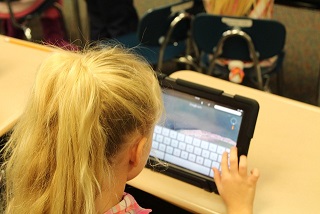Your cart is currently empty!

Enquiry Learning Lacks Research, Post
Enquiry Learning Lacks Research
Emeritus Professor John Sweller of UNSW questions the continuing extension of enquiry-based learning in the face of recent research findings about how humans learn. In https://www.cis.org.au/publication/why-inquiry-based-approaches-harm-students-learning/
Three earlier posts published since 2018 from a hands-on knowledge of enquiry tasks in schools. Enquiry Learning Needs Overhaul, Post Enquiry Tasks Have Pitfalls, Science
Enquiry Tasks in Primary Schools, Post
Professor Sweller’s Position
https://www.unsw.edu.au/staff/john-sweller
Primary knowledge is what we humans learn through personal investigation. Secondary knowledge is what is passed down to us from earlier generations and through aeons of conditioning. Enquiry learning, as we apply the term to education, refers to students finding information themselves for reports, projects, Enquiry (science) and so on. Maybe a case of reinventing the wheel and at great cost to our students!
Enquiry Learning lacks evidence in support. Prof Sweller discusses the lack of evidence that underpins the present drive towards expansion of enquiry-based education. In contrast, he also points to the great body of knowledge we have to defend the transmission of secondary knowledge as the basis of school education.
In his article he maintains that the working memory of children is overloaded in enquiry-based tasks to the point that very little is achieved. His specialist area is in short-term and working memory and his research is constantly cited world-wide.
Assoc Prof.Gillian Kidman’s Position
In The Conversation [https://theconversation.com/explainer-what-is-inquiry-based-learning-and-how-does-it-help-prepare-children-for-the-real-world-115299] Assoc. Prof. Gillian Kidman of Monash University appears to say that“explicit instruction” includes learning objectives and some basic content. She suggests a move across to an enquiry-based learning methodology broadly is well underway in the primary and secondary education system in Australia. To the question of what enquiry-based education is, Professor Kidman states: “Teachers are conducting lessons with an inquiry-based approach, or aspects of it, without realising it”.
Discussion
Just like earlier theories such as Whole Language Theory, Enquiry-based Learning is a theory until there is a bank of evidence to support it and students make progress through it. NAPLAN results suggest that Enquiry Learning has not improved outcomes. There is no evidence that Enquiry-based Learning has arrested boys’ declining reading achievement. Until these factors can be isolated and studied we will not know much.
Many theories sound great — in theory — but are
*hard to implement,
**hard to find workable methods in practice, and
***hard to measure.
An afterthought. Professor Kidman discusses the case of a Grade 1 teacher who posed a question to her class about the nursery rhyme, Jack and Jill Went up the Hill. It resulted in five weeks (yes 5) of enquiry about hills, soils, rocks, force and gravity, etc etc. Did the teacher keep within the parameters of the curriculum? Not possible to do this further up the grades.
Fair use/dealing claimed for illustrations.